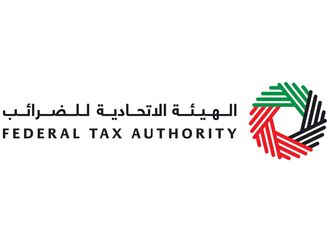
Finding the right mortgage, other than picking the home itself, can be an incredibly arduous process for homebuyers.
The plethora of mortgage deals from different banks and finance firms can easily make one feel overwhelmed and confused.
Understandably, everyone wants to save the most money and secure a deal that is the least painful on the wallet. There are several ways to do this and one of them is to choose between an adjustable and a fixed loan.
An adjustable loan, also known as floating or variable rate mortgage, offers interest that is tied to an index and the underlying market conditions, hence monthly loan repayments fluctuate at regular intervals. A fixed loan, on the other hand, offers interest that remains unchanged for over a certain period.
In the UAE, fixed rate mortgage is a relatively new trend, as most lenders offer home loans based on internally-set rate or Emirates interbank offered rate (Eibor), the rate at which banks borrow money from each other. Just this year, concerns were raised that loan repayments could increase sharply after several banks decided to drop Eibor and set their own base rate.
Borrowing options in the UAE have been limited since the onset of the global financial crisis. Recently, however, some lenders have started to slowly wade back into the market, and the mortgage sector has seen interest easing from highs of eight per cent to between 6.99 per cent and 5.75 per cent.
Mortgage experts, however, advised that there is no one-size-fits-all deal for every homebuyer. So, when should a borrower go fixed and when to go variable? Heinrich Kritzinger, a mortgage consultant at Candour Consultancy, put it simply:
"Choose fixed if you would like certainty regarding what your mortgage repayments will be for the specified period and if you want protection against upward movements in the variable lending rate — if you believe it will trend upwards in the future. Choose variable if you think rates are trending downwards. The major benefit of fixed rates is that you can fix your rate at a time when interest rates are comparatively low."
Attractive rates
Kritzinger reviewed some of the fixed rate products currently available in Dubai that offer one to seven-year terms with interests between 5.99 per cent and 9.25 per cent (see table on right).
He said he would highly recommend any of the one- to three-year options as the rates are attractive, no processing and valuation fees are required, and the early settlement fee is lower than most banks.
Borrowers choosing a fixed rate home loan, are however, advised that interest rates can get more costly as the life of the loan and percentage of borrowed amount increase. "Tenures over three years are uncompetitive," Kritzinger said.
However, according to a Canadian study titled Financing: Floating Your Way to Prosperity by Dr Moshe Arye Milevsky, consumers are better off, on average, financing a mortgage with a short-term floating interest compared to a long-term fixed rate.
The study found that between 1950 and 2000, Canadians would have saved approximately $22,000 (Dh80,740) in interest payments — on a $100,000 (Dh367,000) mortgage amortised over 15 years — by borrowing at floating rates.
Jean-Luc Desbois, managing director of mortgage consultant firm Home Matters in Dubai, said that caution is the key in considering a fixed rate over standard variable.
Uncompetitive rate
"Consumers should be aware that there are certain banks providing a very attractive fixed rate for 12 to 36 months, but this then can jump to an uncompetitive rate, which could last for the remaining term of the mortgage," Desbois told Gulf News.
"Avoid being sucked into a very good headline rate and speak to an independent advisor to get a balanced view of the mortgage market," he added.
Philip Ward, CEO of Abu Dhabi Finance, echoed Desbois' observation, saying that interest rates in fixed mortgages don't really remain insulated from market changes for the entire life of the loan. "They are usually fixed for a limited period of one to three years, after which they will revert to the standard variable rate at the time," Ward told Gulf News.
Abu Dhabi Finance, launched in 2008, is a provider of mortgages to a wide range of clients, with variable interest starting from 5.75 per cent.
"Since we launched two years ago, our rates have only changed once, and that was to come down. However, when you weigh up your option, you should consider your ability to meet your monthly payments if for example, the interest rate was to increase by half a percentage point," he added.
Shekhar Krishnamurthy, head of retail assets and liability at Emirates NBD, said the benefit of a fixed interest rate is that since the monthly repayments are constant over a certain period, the borrower can estimate his cash flow in advance.
However, if the prevailing interest rates drop, the benefit does not get passed on to the customer. Krishnamurthy also noted that a fixed rate loan is typically priced slightly higher than a variable rate loan, as lenders also try to factor in the interest rate risk in pricing.
Hidden charges
"The decision to opt for either a fixed or a floating rate loan largely depends on how the borrower views future movements in interest rates and whether he is willing to pay a slight premium for a fixed rate loan to insulate himself from the risk of interest rate fluctuation inherent to a variable rate loan.
"A borrower should evaluate the interest rates offered by various lenders and look at hidden charges, if any, so that he is able to take an informed decision while selecting the home loan that best suits his requirement," he advised. The greatest advantage to a variable mortgage is that when the interest rates decline, the borrower will see his monthly payments drop.
"The disadvantage is that, should the interest rate increase, the customers' rate increases, and this can sometimes inflate the monthly installments by a large amount," said Ishrat Kiyani, head of premier and wealth management and mortgages at HSBC.












